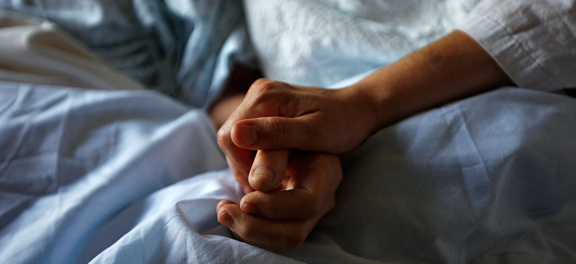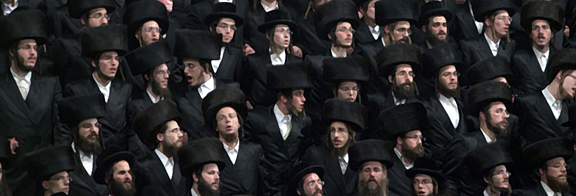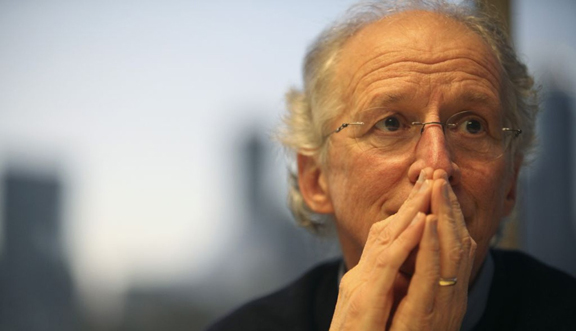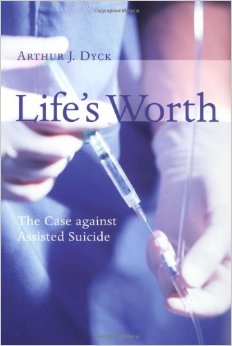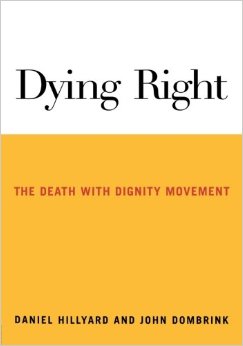In this chapter the spiritual arguments for and against assisted suicide will be examined. What effect would the allowance of assisted suicide have on us as humans and as a society?
The following article shows the varied views of many religions on assisted suicide.
Religion and Spirituality (Source – edited for size)
Death with Dignity laws allow a terminally ill patient to hasten an inevitable and unavoidable death. It’s not suicide nor euthanasia; rather, a possible option if the pain from the underlying illness gets to be too much or quality of life too degraded.
While many faith traditions adhere to ancient traditions and understandings of physical life’s final journey, modern medical technology has provided new information opening the door for faith leaders to actively reconsider some beliefs. Disease and terminal illness represent less mystery now, and are more associated with scientific and technological problem solving.
Death with Dignity laws offer dying individuals an opportunity to ponder an important final life question, “What is the meaning of my life?” For many, this is a profoundly spiritual question, and answers come, not when an individual is consumed by a flurry of doctor’s appointments, treatments or tests, but in the comfort of solitude when an individual feels at peace.
As the leading edge of public policy working to ensure the rights of patients on this important final journey, Death with Dignity is not only a legal issue, but a cultural and spiritual issue, too. Some faith traditions have embraced Death with Dignity as an ultimate act of compassion, and others reject it is as morally bankrupt practice.
Below you will find viewpoints of the differing faith traditions on Death with Dignity. Please remember: there is as much diversity among different faith traditions as there is between them.
Anglican: Rowan Williams, the Anglican Archbishop of Canterbury, has stated that although “There is a very strong compassionate case” for physician-assisted dying, the Anglican church remains opposed to the practice.
Baptist: The American Baptists Churches and Southern Baptist Convention differ in their statements regarding assisted dying. The American Baptists have adopted the policy to [sic] “to advocate within the medical community for increased emphasis on the caring goals of medicine which preserve the dignity and minimize the suffering of the individual and respect personal choice for end of life care.” Whereas the Southern Baptists state the practice violates the sanctity of human life.
Buddhism: Buddhists are not unanimous in their view of physician-assisted dying, and the teachings of the Buddha don’t explicitly deal with it. The Buddha himself showed tolerance of suicide by monks in two cases. The Japanese Buddhist tradition includes many stories of suicide by monks, and suicide was used as a political weapon by Buddhist monks during the Vietnam war. But these were monks, and that makes a difference. In Buddhism, the way life ends has a profound impact on the way the new life will begin. So a person’s state of mind at the time of death is important – their thoughts should be selfless and enlightened, free of anger, hate or fear. This suggests that suicide is only approved for people who have achieved enlightenment and that the rest of us should avoid it.
Catholicism: The official position of the Catholic Church in Rome remains that killing of a human being, even by an act of omission to eliminate suffering, violates divine law and offends the dignity of the human person. However, many Catholics—particularly in the United States—cite various quotations by Pope Benedict XVI as a source for continued disagreement and controversy regarding controversial issues. To compound confusion, physician-assisted dying is frequently and erroneously considered euthanasia:
“Freedom to kill is not a true freedom but a tyranny that reduces the human being into slavery.”
“Scripture, in fact, clearly excludes every form of the kind of self-determination of human existence that is presupposed in the theory and practice of euthanasia.”
“Not all moral issues have the same moral weight as abortion and euthanasia. For example, if a Catholic were to be at odds with the Holy Father on the application of capital punishment or on the decision to wage war, he would not for that reason be considered unworthy to present himself to receive Holy Communion.”
“While the Church exhorts civil authorities to seek peace, not war, and to exercise discretion and mercy in imposing punishment on criminals, it may still be permissible to take up arms to repel an aggressor or to have recourse to capital punishment. There may be a legitimate diversity of opinion even among Catholics about waging war and applying the death penalty, but not however with regard to abortion and euthanasia.”
Christian Science: The Church’s experience with healing indicates hastened dying is not a genuine expression of faith and is a denial of God’s presence and power.
Eastern Orthodox: Physician assisted dying is morally and theologically impermissible because of God’s sovereignty and the sanctity of human life.
Evangelicals: While the National Association of Evangelicals (NAE) opposes physician-assisted dying, the NEA “believes that in cases where patients are terminally ill, death appears imminent and treatment offers no medical hope for a cure, it is morally appropriate to request the withdrawal of life-support systems, allowing natural death to occur. In such cases, every effort should be made to keep the patient free of pain and suffering, with emotional and spiritual support being provided until the patient dies.” Several denominations and fellowships hold membership in the National Association of Evangelicals and adhere to NEA doctrine.
Hinduism: There are several Hindu points of view on physician-assisted dying. Most Hindus would say that a doctor should not accept a patient’s request for death since this will cause the soul and body to be separated at an unnatural time. The result will damage the karma of both doctor and patient. Other Hindus believe that physician-assisted dying cannot be allowed because it breaches the teaching of ahimsa (doing no harm). However, some Hindus say that by helping to end a painful life a person is performing a good deed and so fulfilling their moral obligations.
Islam: Assisted dying is forbidden. Physicians must not take active measures to terminate a patient’s life. The Qur’an states: “Take not life which Allah made sacred otherwise than in the course of justice” [sic] An essay on the web page of the Islamic Center of Southern California states that “Since we did not create ourselves, we do not own our bodies…Attempting to kill oneself is a crime in Islam as well as a grave sin. The Qur’an says: ‘Do not kill (or destroy) yourselves, for verily Allah has been to you most Merciful.’ (Quran 4:29)…The concept of a life not worthy of living does not exist in Islam.”
Jehovah’s Witness: Physician assisted dying violates the sanctity of life and Christian conscience.
Judaism: The Union of Orthodox Jewish Congregations has been heavily involved in efforts, in both Congress and the courts, to restrict physician assisted death. In 2000, Rabbi J. David Bleich, Jewish Law Professor at Yeshiva University’s rabbinical seminary and Law Professor at Yeshiva’s Cardozo Law School, stated that “Judaism places the highest importance on palliation of pain, particularly in the case of terminal patients,” and that “Judaism teaches that suicide is an offense against the Deity who is the Author of life.” Conservative and Reform leaders have called for increased discussion of end-of-life issues, but have not issued official positions on assisted dying.
Methodist: Methodists generally accept the individual’s freedom of conscience to determine the means and timing of death. Some regional conferences have endorsed the legalization of physician assisted dying.
Mormon: Euthanasia is condemned. Anyone who takes part in euthanasia, including ‘assisted suicide’, is regarded as having violated the commandments of God. However the Church recognizes that when a person is in the final stages of terminal illness there may be difficult decisions to be taken. The Church states that “When dying becomes inevitable, death should be looked upon as a blessing and a purposeful part of an eternal existence. Members should not feel obligated to extend mortal life by means that are unreasonable.”
Sikh: The Sikh Gurus rejected suicide (and by extension, euthanasia) as an interference in God’s plan. Suffering, they said, was part of the operation of karma, and human beings should not only accept it without complaint but act so as to make the best of the situation that karma has given them. This is not absolute. Sikhism (as already said) believes that life is a gift from God, but it also teaches that we have a duty to use life in a responsible way. Therefore Sikhs contemplating euthanasia for themselves or others should look at the whole picture, and make appropriate distinctions between ending life, and not artificially prolonging a terminal state.
Spiritualism: Through their Life and Death with Dignity policy, National Spiritualist Association of Churches “Affirms the right of each individual to determine for self, or through a guardian the extent through which the medical community or family may interfere with the treatment of a terminal, or irreversible condition, by the use of Living Wills, Advanced Directive and Durable Power of Attorneys, available in all states in various form. We as Spiritualists are bound to follow the law. If we, as individuals, would have the current laws changed or extended beyond their present scope, it is our individual right to work for this through the proper channels.”
Unitarian Universalist: The right to self-determination includes the choice of hastened dying. Unitarians support immunity from prosecution for those who, with proper safeguards, honor the requests of terminally ill patients.
—
Those who oppose assisted suicide often argue that to take one’s life is to take the place of God in determining the timeline of death. The following article presents this view:
We Are Not Our Own: On God, Brittany Maynard, and Physician-Assisted Suicide
By John Piper (Source)
In several heart-wrenching videos (here, here, and here), 29-year-old Brittany Maynard has talked about her intent to take her life, possibly tomorrow, by means of physician-assisted suicide in Oregon, because of a fast-growing, inoperable, fatal brain tumor.
Joni Eareckson Tada, who has suffered more and longer than most of us, has responded to Brittany’s sorrowful plan with empathy and biblical conviction. All of Joni’s concerns merit serious consideration. The one I want to expand on is this: She said, “I understand Brittany may be in great pain, and her treatment options are limited and have their own devastating side effects, but I believe Brittany is missing a critical factor in her formula for death: God.” Others have written open appeals to Brittany; I write mainly for those who are considering this issue afresh in light of Brittany’s story.
Cancer Is an Enemy
I hate cancer. It is regularly an accomplice in the life-robbing work of our “final enemy,” death (1 Corinthians 15:26). Death was not part of paradise, as God created it in the beginning. And death will not be part of the New Earth, as God brings it in the resurrection. In that sense, it opposes the ultimate goodness that God designed for this creation. It is an enemy.
But in the resurrection, “Death will be no more” (Revelation 21:4). Death came into human existence through the devil’s incitement to sin. But the devil himself was stripped of his condemning power when Christ died for sinners. God gets the last word. His Son “took on human nature so that through death he might destroy the one who has the power of death, that is, the devil” (Hebrews 2:14).
So death remains, for now. It hisses with fearsome rage. But for those who are in Christ, its fangs have been removed.
Death is swallowed up in victory.
O death, where is your victory?
O death, where is your sting? (1 Corinthians 15:54–55)
Answer: “The sting of death is sin, and the power of sin is the law. But thanks be to God, who gives us the victory through our Lord Jesus Christ” (1 Corinthians 15:56–57). In other words, Christ bore the curse of God’s law for us (Galatians 3:13). Therefore, it cannot condemn us for our sins (Colossians 2:14–15). They are covered. The sting — the fangs — has been removed.
Therefore, in Christ, we will die physically, but not spiritually. Our souls will go “home” (2 Corinthians 5:8); they will go to be “with Christ” (Philippians 1:23). Then at his coming to earth, our bodies will be raised and glorified (1 Thessalonians 4:15–16).
Subjection to Futility — In Hope
But even though, in the beginning, Satan incited sin, and death came through sin (Romans 5:12), God himself was the judge who brought the sentence of death on the human race. The horror of death is God’s appointed response to the horror of sin. Death, by God’s design, is the physical mirror of the moral outrage of human rebellion against God.
Thus God tells us that in response to sin, “creation was subjected to futility, not willingly, but because of him who subjected it, in hope . . .” (Romans 8:20). Only God could do that. Neither Adam nor Satan acted with a view to the hope of the age to come. This was God’s doing. God appointed death for the human race. He did it with a view to death’s final defeat and removal. But it was he who did it.
So the Bible continues, “. . . in the hope that the creation itself will be set free from its bondage to corruption, and obtain the freedom of the glory of the children of God” (Romans 8:21). There is a bondage to the corruption of death for now. But the day of freedom is coming. God has appointed these times.
Until then, we die. And we live, with Christ. This death, and this life, are by God’s appointment. Satan incited sin. Adam and Eve acted sin. And God decreed the consequence of sin, namely, death.
And he is removing that consequence in stages. At the first coming of Christ, the immeasurable penalty of sin was paid (Colossians 2:14). And at the second coming, the miserable effects of sin will be fully removed. “The last enemy to be destroyed is death” (1 Corinthians 15:26). Death will be no more.
But until then, the final disposition of death and life belong to God. He brought it in; he will take it out. And while it is here, he claims unique rights over it. “See now that I, even I, am he, and there is no god beside me; I kill and I make alive; I wound and I heal; and there is none that can deliver out of my hand” (Deuteronomy 32:39; see also 1 Samuel 2:6).
Therefore, Job’s reverent and grief-stricken response to the death of his ten children was profoundly and painfully right: “The Lᴏʀᴅ gave, and the Lᴏʀᴅ has taken away; blessed be the name of the Lᴏʀᴅ” (Job 1:21).
How Then Shall We Die?
How then should we think about our rights with regard to death? Should life be in our control? Does it belong to us, to create or eliminate?
The apostle Paul did not leave us without help on this question. Whose are we? To whom do we belong? Who owns our body? He answers: “Do you not know that your body is a temple of the Holy Spirit within you, whom you have from God? You are not your own, for you were bought with a price. So glorify God in your body” (1 Corinthians 6:19–20).
These words were spoken to guide us in relation to our sexuality. But the principle holds for death. The more serious the consequences in regard to body and soul, the more firmly the principle holds. And death brings the greatest consequences to soul and body. It is the moment that sets the final destiny of both (Luke 16:26; Hebrews 9:27). Therefore, the principle holds at death: We are not our own.
Our bodies — their life, their death — belong to Christ. He bought them. They are not ours to dispose of as we will. They are his. And they exist for his will, and his glory.
Paul speaks this way, not only about sexuality, but about death and dying.
None of us lives to himself, and none of us dies to himself. For if we live, we live to the Lord, and if we die, we die to the Lord. So then, whether we live or whether we die, we are the Lord’s. For to this end Christ died and lived again, that he might be Lord both of the dead and of the living. (Romans 14:7–9)
All three points from 1 Corinthians 6 are here again, not in regard to sex, but explicitly in regard to death. Christ paid the price of his life to be the rightful Lord over the living and the dead. Therefore, we are not our own; we are the Lord’s. Therefore, we live and we die “to the Lord.” That is, life and death are not our private concern. They are not our choice. He bought us. He owns us. We live and we die to him — in reliance on him, in accordance with his will, for his glory.
Thus, “Thou shalt not murder,” is put on an entirely new footing. Not only do our lives belong to God by virtue of being created in his image, but now we are his — in life and death — by virtue of the purchase of Christ. We are doubly not our own. Our life and our death belong to God. He gives, and he takes. And he has put a double seal on that unique divine right: You are mine, by birth and by blood. You do not live, and you do not die, on your own terms.
What are his terms? We may risk our lives for the sake of saving others (Acts 20:24; Philippians 2:30). And in suffering, we may seek to lessen the pain — for others and for ourselves (1 Timothy 5:23; Luke 10:37). God has put this privilege in our hands. It is part of the limited lifting of the curse of the fall. But the right to end our lives, he has not put in our hands.
Our Final Sufferings Are Not Meaningless
The fact that suffering almost inevitably increases with the approach of death is often a terrifying prospect. Even those who are fearless of death tremble at the process of dying. I have seen terrible suffering in the hour of death. At one young mother’s funeral I said, “The great triumph was that she never cursed God.” Otherwise it was horrible.
But this tragic fact — which the suffering apostle knew better than any of us — did not change the truth: Giving and taking life belongs to God, not to us. And the suffering of our final days is not meaningless.
Though our outer self is wasting away, our inner self is being renewed day by day. For this light momentary affliction is preparing for us an eternal weight of glory beyond all comparison, as we look not to the things that are seen but to the things that are unseen. For the things that are seen are transient, but the things that are unseen are eternal. (2 Corinthians 4:16–18)
Before anyone mocks the phrase “light momentary,” let that person realize that Paul was referring to his lifetime of suffering, the details of which are almost unbearable to read (2 Corinthians 11:23–28). “Light” contrasts with weight of glory. “Momentary” contrasts with eternal. Paul knew what it was to be “so utterly burdened beyond our strength that we despaired of life itself” (2 Corinthians 1:8). Such suffering was not light. It was not momentary. Except in comparison to the length and the glory of heaven.
But the point of this text is that our final sufferings are not meaningless. They are “preparing for us an eternal weight of glory” (2 Corinthians 4:17). “Preparing” — working, effecting, bringing about. They are not aimless tortures.
And the grieving spouses and mothers and fathers and brothers and sisters and sons and daughters are not merely watching. They are serving, caring, loving. Yes, suicide spares them the pain of watching. But it also denies them the privilege of serving. There are moments in the tireless care of the dying beloved that are so intense with self-giving love that they would not be traded for any death.
On the Edge of the Grand Canyon
Brittany Maynard has sweetened her last days with trips to the Alaskan glaciers, and the Kenai Fjords, and the Grand Canyon. In one sense, this it totally understandable. We were made for beauty. But in another sense, it is puzzling. For there is one thing that standing on the edge of the Grand Canyon does not do for you: It does not enhance your sense of autonomy. It makes you feel small and vulnerable in the presence of greatness and majesty.
That is a good thing. For we are small and fragile. We are not autonomous. We were never meant to be. Beauty, Yes. Joy, Yes. Greatness, Yes — outside of us, filling us with worship and wonder. We were made for God.
In one of her videos, Brittany wisely says, “Make sure you’re not missing out. Seize the day. What do you care about? What matters? Pursue that. Forget the rest.”
I could not agree more. What matters is that we have been bought with a price. We are not our own. We live and we die and we suffer for the glory of Christ, our Lord. And we never forget the truth that makes everything worth it: “The sufferings of this present time are not worth comparing with the glory that is to be revealed to us” (Romans 8:18).



